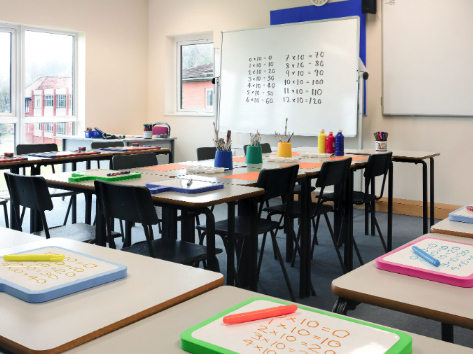Help slow the worsening of your child’s short-sightedness2
with MiSight® 1 day contact lenses
If not treated, your child’s myopia (short-sightedness) may lead to an increased risk of serious vision problems later in life–such as cataracts, glaucoma, and other conditions that could threaten their sight.3-6
MiSight® 1 day contact lenses not only provide clear vision2 —they are also the first soft contact lenses proven to slow the worsening of myopia in children.†2
When your child wears MiSight® 1 day contact lenses, they can make the most of their favourite activities while experiencing clear vision and freedom from glasses.2
To start your child’s journey to a clearer future, find your nearest accredited myopia management optician and ask them about MiSight® 1 day.
MiSight® 1 day contact lenses not only provide clear vision2 —they are also the first soft contact lenses proven to slow the worsening of myopia in children.†2
When your child wears MiSight® 1 day contact lenses, they can make the most of their favourite activities while experiencing clear vision and freedom from glasses.2
To start your child’s journey to a clearer future, find your nearest accredited myopia management optician and ask them about MiSight® 1 day.

Hear from the experts
Find out why specialist optometrist, Indie Grewal, recommends myopia management for his young short-sighted patients.
I have been an eye care professional for 30 years, and I am delighted that we now have a clinically proven product that can cut the worsening of short-sightedness in children.*1




Indie Grewal, Specialist Optometrist
MiSight® 1 day contact lenses are child-friendly2
In our clinical study with MiSight® 1 day contact lenses in children, we found that they:
Children as young as 8
can confidently apply MiSight® 1 day contact lenses7
Cuts the worsening
of myopia by approximately 50%*1
90% of children
prefer their MiSight® 1 day contact lenses over glasses7

MiSight® 1 day application
and removal guide
and removal guide
Children as young as 8 years old can confidently apply and remove MiSight® 1 day lenses on their own, and nearly all feel they are comfortable.‡7

Myopia symptoms in children
Myopia can worsen rapidly, particularly in younger children, so it's important to start treatment as soon as possible.8 Learn more about myopia symptoms in children.

Vision simulator
Myopia is more than just blurry vision—it's a disease that causes excessive eye growth.
Find out what myopia looks like through your child’s eyes.
Find out what myopia looks like through your child’s eyes.

Myopia quiz
Take our quiz to find out if your child could become myopic and what to do if they already are.
* Using measured and modelled data, pooled across ages (8-17), MiSight®1 day slowed myopia progression by an average of approximately 50%1.
† Compared to a single vision 1 day lens over a 3–year period.
‡ When talking about their wearing experience – >94% of children in the MiSight® 1 day clinical trial reported that they 'Don't notice them' or 'Sometimes'. No children reported 'They bother me a lot'.
References
1. Arumugam B et al. Modelling Age Effects of Myopia Progression for the MiSight® 1 day Clinical Trial. Invest. Ophthalmol. Vis. Sci. 2021; 62(8): 2333.
2. Chamberlain P et al. A 3-year Randomized Clinical Trial of MiSight® Lenses for Myopia Control. Optom Vis Sci. 2019; 96: 556-567.
3. Xu L, Wang Y, Wang S, Jonas JB. High myopia and glaucoma susceptibility, the Beijing Eye Study. Ophthalmology. 2007; 114(2): 216-20.
4. Flitcroft DI. The complex interactions of retinal, optical and environmental factors in myopia aetiology. Prog Retin Eye Res. 2013; 31(6): 622-60.
5. Younan C et al. Myopia and incident cataract and cataract surgery: the blue mountains eye study. Invest. Ophthalmol. Vis Sci. 2002; 43(12): 3625-3632.
6. Chen SJ et al. Prevalence and associated risk factors of myopic maculopathy in elderly Chinese: the Shihpai eye study. Invest. Ophthalmol. Vis Sci. 2012;53 (8): 4868-73.
7. Lumb E et al. Six years of wearer experience in children participating in a myopia control study of MiSight® 1 day. CLAE 2023; 46(4): 101849.
8. Zadnik K et al. Factors Associated with Rapid Myopia Progression in School aged Children. Invest. Ophthalmol. Vis. Sci. 2004; 45(13): 2306.
CVGY8241077-1










